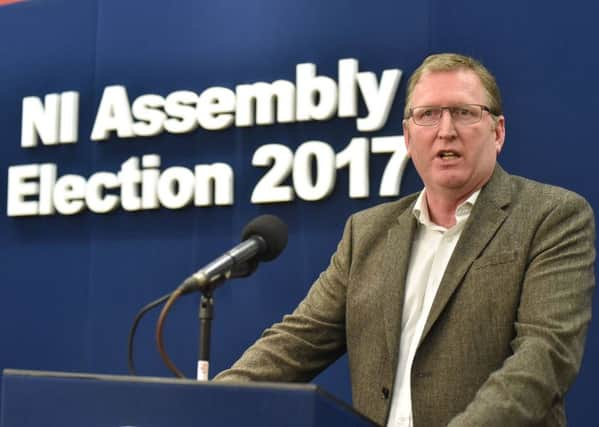Irish language act a political tool that could Balkanise NI


This is simply not the case and is grossly unfair. I have no issue with the language, Irish speakers or the Irish language community.
The reality is we find ourselves in a manufactured crisis.
The language has become a political tool, a cultural stick to beat people with and a weaponised policy that does nothing but feed into the win/lose nature of politics in Northern Ireland.
Advertisement
Hide AdAdvertisement
Hide AdI do not fear the Irish Language nor do I fear Ulster Scots – but I do fear the effects of them being played off against each other. Not just now, but five or ten years from now.
Much has been put in place to try and bring communities together. The ‘Together Building a United Community’ (T:BUC) programme is certainly not perfect but has worked hard to deliver initiatives that can unite us.
However, the sad fact remains, we still have a lot that continues to divide us and mark out territory; flags, peace walls, murals and various cultural celebrations.
If you look at an electoral map of Northern Ireland now you will see a very stark delineation between green and orange. Something akin to Bosnia Herzegovina where that country finds itself split into two major areas – the Republic of Serbska and the Federation of Bosnia Herzegovina.
Advertisement
Hide AdAdvertisement
Hide AdWhen speaking about the languages of the Bosnian State, Mark Kelly, the co-author of “Interpreting the Peace: Peace Operations, Conflict and Language in Bosnia-Herzegovina” argues that they “represent the symbolic assertion of national identity over the pragmatism of mutual intelligibility”.
My real fear is that if we apply an ILA to Northern Ireland in the way it is being driven, we will find our country split in two with road signs and language services delineating territory and promoting division.
It would Balkanise our society through stealth, with some individuals and political parties unknowingly complicit in it.
If we follow the path some are advocating, dual English and Irish road signs and services will be found in Nationalist areas while dual English and Ulster Scots signs will be found in Unionist areas.
Advertisement
Hide AdAdvertisement
Hide AdNorthern Ireland will be reduced to a canton state of two halves. Division will not only be promoted by our government, but we will pay to enforce it.
For me the Belfast Agreement is the key – not the hybrid Frankenstein version the DUP and Sinn Fein came up with at St Andrews.
What was promised in 1998 – and voted on by the people – has already been and continues to be delivered.
There is no discrimination again the Irish language or its speakers apart from those few thoughtless politicians who have damaged our society and should know better.
Advertisement
Hide AdAdvertisement
Hide AdYet language remains an emotive issue and I fear it is being used as part of an ideological campaign to divide us.
The irony is that it is the English language that unites all the people of the United Kingdom and the Republic of Ireland in a common tongue. As Taoiseach, Enda Kenny acknowledged “we are an English speaking island.”
We have much to be getting on with in terms of health, education and a host of other problems facing Northern Ireland. An ILA, no matter how enthusiastic you are about it, should not be allowed to stymie progress in restoring Stormont.
Right now we need to explore alternatives such as voluntary coalition and the original Welsh Assembly model of a body corporate. One thing is certain - it’s time to get back to work.
• Doug Beattie is UUP MLA Upper Bann